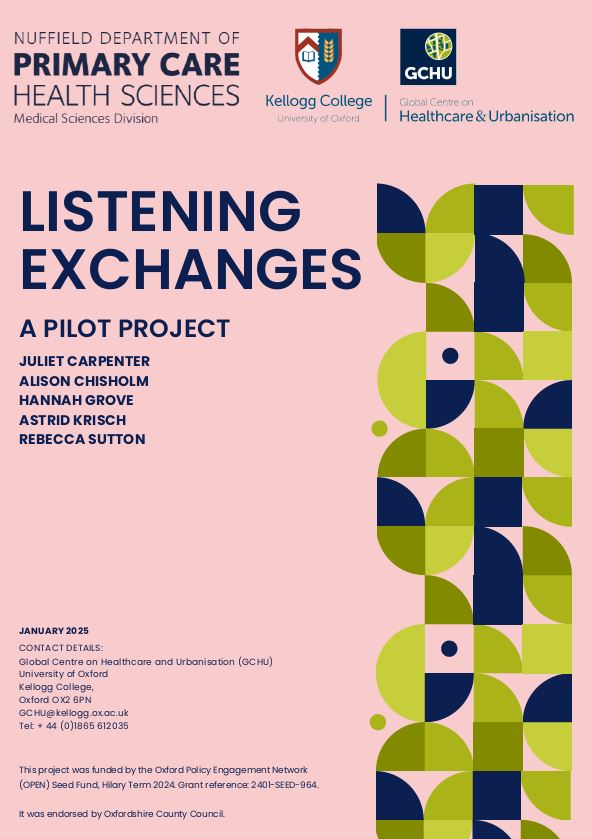Becks Sutton
Mediator, “Listening Exchanges” project
Email: [email protected]
Polarisation and division around LTNs in Oxford was palpable. I felt it on my street, with a new bollard a stone’s throw from my house. Some neighbours loved it; others hated it. Our temporary rubber bollard was driven over and pulled out many times. The ‘permanent’ wooden bollard was chain-sawed. People in the community were afraid to discuss the issue. And, within our silos, we often stereotyped and criticised those on the opposite side.
Polarisation around LTNs and other contentious issues has harmed our communities. But there are ways through. I would like to share the results of a locally-based project to explore ways of staying in respectful connection with our neighbours when we disagree.
Working together with a team at the Global Centre on Healthcare and Urbanisation at Kellogg College, we conducted ten ‘Listening Exchanges’ among citizens of East Oxford. In these, two people with clearly divergent views listened carefully to each other, reflecting back a summary of what they had heard, and shared their own lived experience. It was an environment where the intention was not to change anyone’s mind and where nothing was going to change in real terms on LTN policy as a result. This was a carefully facilitated exchange, creating the container to provide for an effective exchange was crucial, more on which is in our report.
Overall, the experience was one of preconceptions melting away, often quickly and sometimes more gradually, in the presence of a real person with their own concrete story. Participants said they felt heard and understood after the process. One man said he had found it cathartic to express why he felt so frustrated by the bollards, finally revealing, “When I see a bollard, it says to me that I don’t matter”. All said they liked their ‘listening partner’ in the exchange, expressing respect for them and many said they understood why they felt as they did. Some said they were resolved to listen better to people with opposing views, others acknowledged that they were not as good at listening as they thought they were.
This kind of facilitated, intimate listening can be used to address any contentious issue in an effort to reduce polarisation. But scaling it up is challenging. Preserving the intimacy of the encounter means only small numbers can directly sit in a Listening Exchange. It would be worth experimenting with scaling up by recording and sharing the encounters, as others watching may feel less isolated by recognising something of themselves in the participants. Listening Exchanges could also be held between community influencers, those in positions of authority or others posting frequently on social media, to explore whether the way they engage softened as a result.
Furthermore, as a deep dive into citizens’ perspectives, a series of Listening Exchanges can alert policymakers to concerns which may not be well articulated in other consultative fora. Sitting one to one, in a calm way, we go beyond caricatured statements to what lies beneath.
In these hyper-aggressive times, I believe that listening well is so important, to sidestep the distractions that would keep us apart, work out what we do and don’t agree on, and stay connected with the humanity of our neighbours even when we don’t agree. We need this realistic grounding to find pragmatic ways forward in the midst of our differences.
You can read more about the “Listening Exchanges” project in our Final Report.

